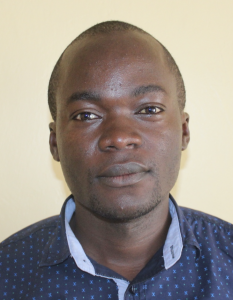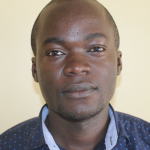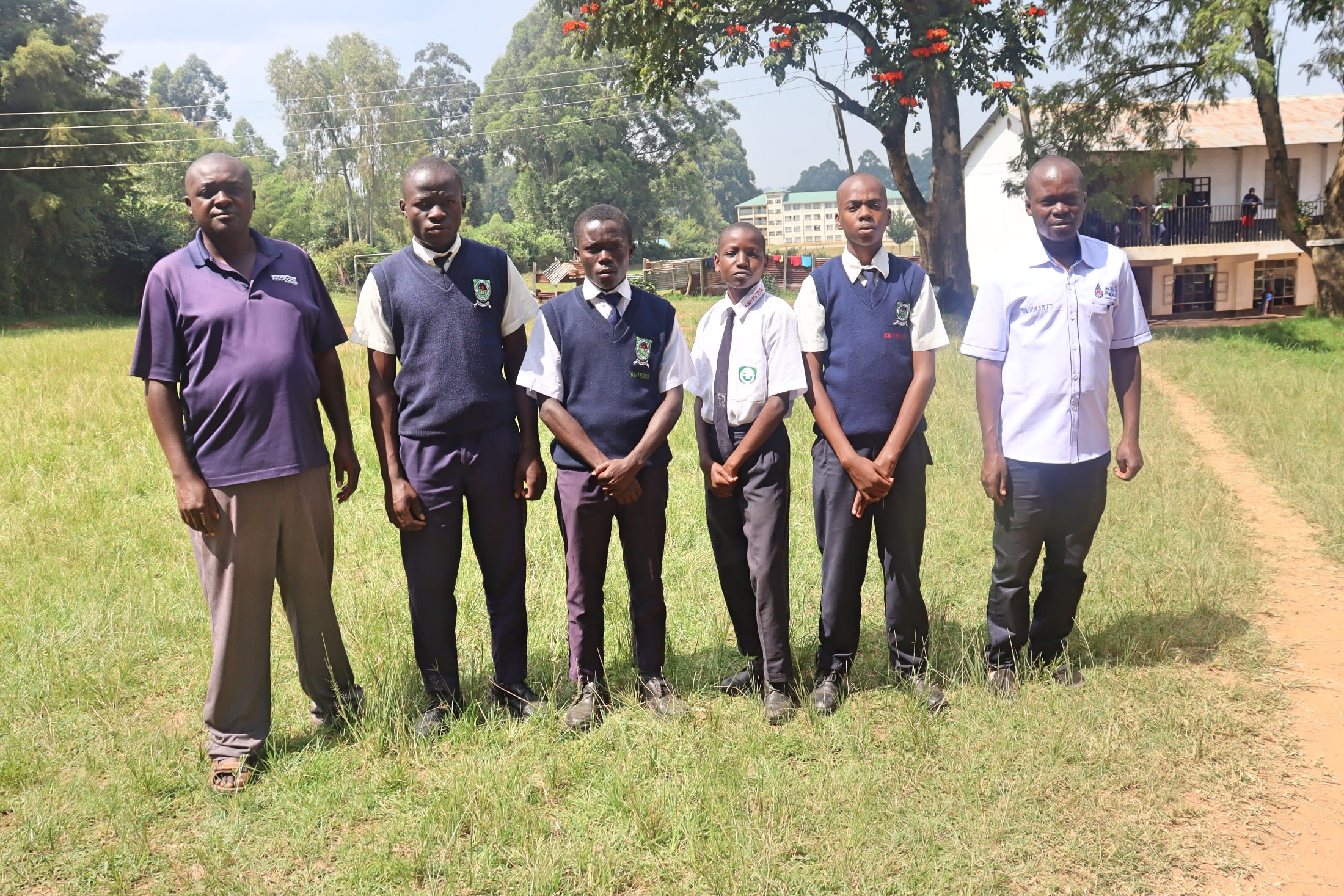Kaimosi Boys High School students experience a water crisis daily, paying the high cost of missing valuable learning time while collecting water.
With a large population of 1,152 students and 42 staff members, it seems no matter how much effort the students expend, there is never enough water for everyone.

Primarily, students collect water from a piped system attached to a dug well at the school, but because of the large number of students drawing water, the well runs dry quickly, especially during the dry season.
"As a student from this school, much has been painted on us due to [the] lack of water. People believe that if you join this school, you will no longer bathe daily, wash classes, and moreso, food will not be safe for eating. During the dry season, I get sleepless nights because [I] am supposed to fetch water at midnight to avoid long queues. Also, sometimes the water dries up," said Robin O., shown below with the green bucket alongside many others trying to collect water.

The water from the well is time-consuming to collect because it runs low. It is also unsafe for human consumption, especially during the rainy season when the entire area surrounding the well floods.
There is a small rain tank on the campus, but the minimal amount of water it can hold is almost pointless for the large population. The other option is for the school administration to pay to have water delivered by cart or truck. But this is a cost the school cannot afford to pay, especially for water which is questionable at best.
"I remember the last term when I had a problem with my stomach caused by unsafe water brought by a truck. This caused me to miss classes while seeking medication," said Robin.
"Being a teacher, the major challenge we face is a lack of water. The normal school activities are not done on time, i.e. morning preps are not attended, and I cannot teach half of the class while others are outside queuing for water which is not enough," said teacher Owen Olukohe, shown below carrying water with students.

"The syllabus coverage is not done on time, especially during the month of January when we have no water [at the] school. We depended on water brought by a truck which is not often clean," said Mr. Olukohe.
A new borehole well will ensure that every student and staff member has access to safe water for drinking. There will be plenty of water for bathing, washing uniforms, and cleaning the school. Sufficient water should also give students more time in class, improving their academics, and minimizing their water-related health issues.
What We Can Do:
New Well
We conducted a hydrogeological survey at this school, and the results indicated the water table beneath it is an ideal candidate for a borehole well. Due to a borehole well's unique ability to tap into a safe, year-round water column, it will be poised to serve all of the water needs for this school's large population, even through the dry months.
The school will help collect the needed construction materials such as sand, rocks, and water for mixing cement. They will also provide housing and meals for the work team, in addition to providing local laborers. We will complement their materials by providing an expert team of artisans and drilling professionals, tools, hardware, and the hand-pump. Once finished, water from the well will then be used by the school's students and staff for drinking, handwashing, cooking, cleaning, and much more.
Handwashing Stations
The student health club will oversee the two new handwashing stations we will provide, and make sure they are kept clean and in working condition. The club leaders will fill the handwashing stations with water daily and make sure they are always supplied with a cleaning agent such as soap or ash.
VIP Latrines
We will construct two triple-door latrine blocks using local materials that the school will help gather. All of these new latrines will have cement floors that are designed to be easy to use and to clean. And with a borehole right on school property, there should be enough water to keep them clean.
Training on Health, Hygiene, COVID-19, and More
We will hold a one-day intensive training session with students, teachers, and parents. This training will cover a wide range of topics including COVID-19 symptoms, transmission routes, and prevention; personal and environmental hygiene; and the operation and maintenance of the borehole, latrines, and handwashing stations. There will be a special emphasis on handwashing.
Our team of facilitators will use a variety of methods to train, including participatory hygiene and sanitation transformation, and asset-based community development. We will initiate a student health club, which will prepare students to lead other pupils into healthy habits at school and at home. We will also lead lectures, group discussions, and provide illustrative handouts to teach health topics and ways to promote good hygiene practices within the school including handwashing and water treatment. We will then conduct a series of follow-up trainings before transitioning to our regularly scheduled support visits throughout the year.
We and the school strongly believe that all of these components will work together to improve standards at this school, which will help lead to better student academic performance and will help unlock the opportunity for these students to live better, healthier lives.





 Borehole Well and Hand Pump
Borehole Well and Hand Pump
 Rehabilitation Project
Rehabilitation Project


































